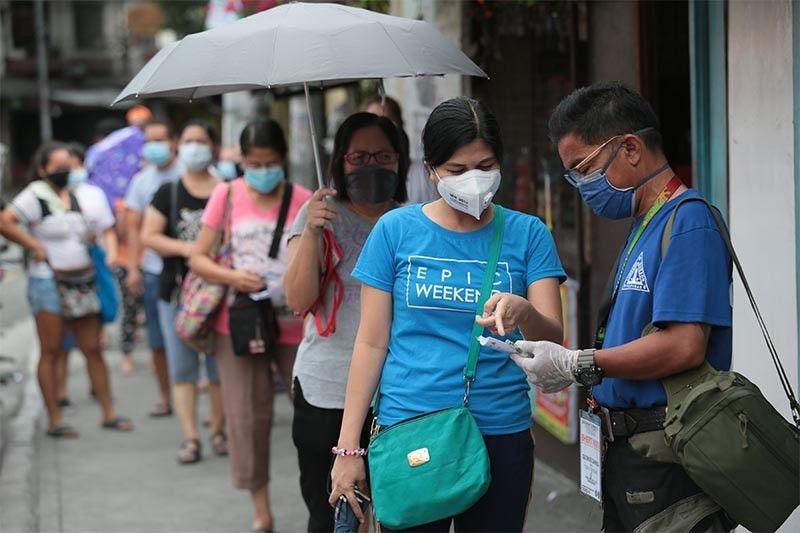UST study: 'Rigorous testing, tracking' can curb rise in COVID-19 cases under GCQ

MANILA, Philippines — Researchers from the University of Santo Tomas project an "increase [in] the forecasted number of infected cases and deaths in Metro Manila" under a General Community Quarantine.
According to the UST CoV-2 Model developed by Associate Professor Bernhard Egwolf and Fr. Nicanor Austriaco, O.P., however, "these increases are not inevitable" and "can be offset with a rigorous tracking, testing, and tracing program that seeks to limit community spread by breaking chains of viral transmission."
Egwolf has a doctorate in Physics from Ludwig Maximilian University of Munich while Austriaco has Ph.D. degree in Biology from the Massachusetts Institute of Technology.
The UST researchers said that this stage of the pandemic needs a "testing capacity of 15,000 tests per day and 1,800 contact tracers" in Metro Manila.
They added that the "geographic distribution of this testing and contact tracing capacity should correspond to the severity of the local pandemics in each of the cities of Metro Manila."
Since their study found that infection rates are higher in Quezon City and Manila, they recommended that testing and contact tracing be focused in these areas.
The Palace this week claimed that the country has met — and even exceeded — its target national testing capacity of 30,000 per day. However, data from the health department showed that around 10,000 samples or fewer are processed per day.
The Department of Health has clarified that the testing capacity of 32,000 is an estimate and does not mean that many tests are actually performed each day.
The World Health Organization has also sounded the alarm over the slow contact tracing being conducted by the government.
READ: Premature GCQ in Metro Manila could add 24K cases, 1,700 deaths by June — UP study
Preventing 'superspreading' events
The researchers also recommended that "tracking, testing, and tracing programs in Metro Manila focus their efforts on limiting the impact of superspreading events (SSEs)." Super spreading events occur when one person with a virus infects a large number of other people.
The study said that SSEs contribute to explosive growth and sustained transmissions of infectious diseases. It added that usually 20% of the population "contributes to at least 80% of the potential to transmit infectious disease."
Researchers add that UST's College of Science and the Faculty of Engineering is working on a design for mobile COVID-19 testing labs and recommended that local government units adopt the design for testing in their own municipalities.
Members of the Inter-Agency Task Force on the Management of Emerging Infectious Diseases are expected to meet Wednesday to decide on whether to relax the restrictions in Metro Manila, which has been under an enhanced community quarantine since March.
Under the more relaxed GCQ, more non-essential industries will be allowed to reopen. Public transport will also be allowed to resume operations at a reduced capacity to ensure proper social distancing.
There are currently 15,049 COVID-19 cases and a death toll of 904 in the country.
- Latest
- Trending


































